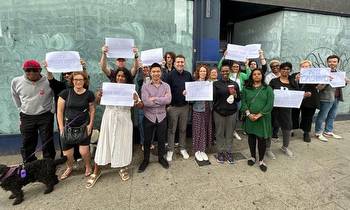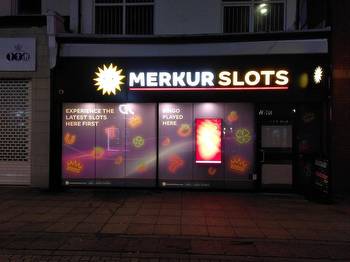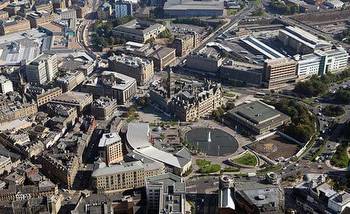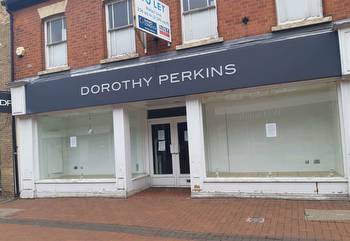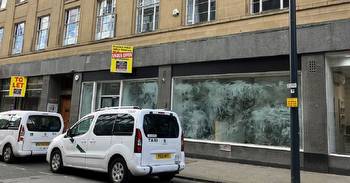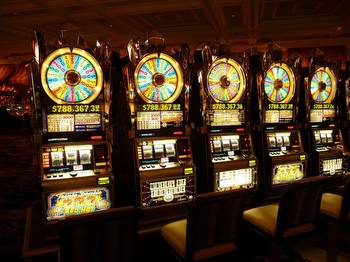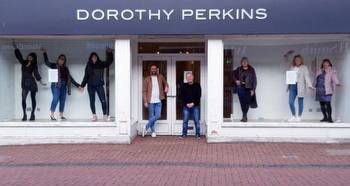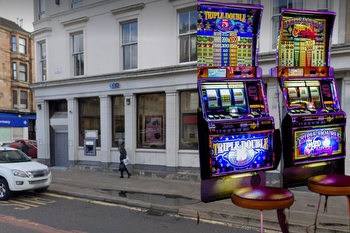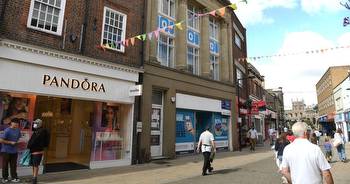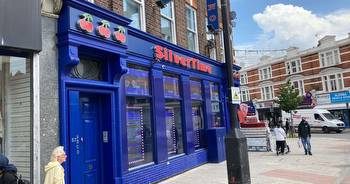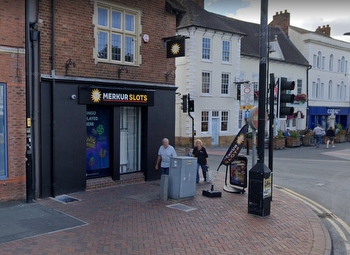Public health concerns lead to city centre gambling plans being refused

CONCERN over the health impact on some of the district’s most vulnerable residents has led to a plan for a new gambling centre in Bradford being refused.
Merkur Slots recently revealed plans to open a gaming centre on Bank Street, in the former Leeds Building Society unit.
There are already five gambling businesses within 50 metres of this unit.
This week, the application was refused by Bradford Council, which cited concerns that the city centre is an area with a high amount of people “vulnerable to gambling related harms.”
It was a rare example of a planning application being refused on public health grounds.
One of the main objections to the plan was by a partnership of Bradford Council’s Public Health department, the Reducing Inequalities Alliance - Bradford and Craven Health and Care Partnership and the multiagency Bradford Gambling Harms Reduction Partnership.
They argued that the extra gambling business could increase gambling and lead to a “high risk of harm to vulnerable people who live, work, study and socialise” in the city centre They added: “This area has high levels of deprivation, and is very close to schools, colleges and university, as well as to drug and alcohol treatment services which are in close proximity.”
Refusing the application, planning officers said: “Although gambling is safe for the majority of people, evidence provided by the Council's Public Health Team show that gambling related harms are higher in areas of higher deprivation, and that there are links between gambling and mental health issues, with problem gamblers at least twice as likely to die from suicide when compared with the general population.
“People living in deprived areas are more likely to gamble.
“Bradford City Ward has the highest population within the District and is also within one of the top 10 per cent most deprived areas of England. Within the district area there is estimated to be more than 13,000 problem gamblers, suffering from diagnosable levels of harm relating to gambling, and those within the city centre area are considered to be at a higher risk of harms, due to the high levels of deprivation it suffers.
“The proposed location is within the vicinity of a large number of sites used by people know to be vulnerable to gambling related harms and is within a close proximity of services helping people tackle addiction or seeking help for debt problems, including Citizen's Advice, and the Council's Customer Service Centre.
“Over the last few years, data shows that there has been a 42 per cent increase in the number of gambling venues across the Bradford District. This increased accessibility and availability of gambling is likely to lead to increases in the number of regular and problem gamblers, and there appears to be a trend to concentrate gambling uses within areas of high deprivation.”
Officers also raised concerns that there was an “overconcentration” of gambling businesses in that stretch of the centre.
They said: “The impact of another gambling associated establishment in this area, where there is already an overconcentration of similar uses, would be unsustainable, and removes opportunities for the area to adapt within its primary retail function.”
Before the plans had been refused, Merkur had written to the Council to dispute many of the points made, and argue that refusing the plan would likely lead to an appeal.
The company said: “In terms of the impact on health, there is simply no evidence to support this claim, particularly with Bradford Metropolitan Police having no concerns over the proposal.
“Other local authorities have challenged the impacts of Merkur Slots venues and used health impacts as a reason for refusal, despite having no evidence.
“Planning inspectors have consistently overruled this ideology, reaffirming there is no evidence to associate negative health implications to adult gaming centres.”
Councillor David Green (Lab, Wibsey) has previously raised concerns about the number of gambling businesses opening in the District.
Hearing about the refusal of the latest application, he said: “I think that this decision not only reflects good planning reasons, but it also reflects wider council policies on trying to protect vulnerable people from the harm of problem gambling.
“There are more than sufficient book makers and gaming centres in Bradford city centre, and I think more would increase the risk of vulnerable people being harmed by problem gambling.
“I’m delighted with this decision.”








